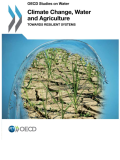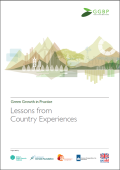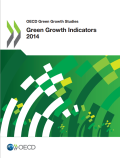This report finds that the rapid pace of urbanisation represents an opportunity to build more sustainable, innovative and equitable towns and cities, and to use the world’s natural resources more efficiently. It offers strategies for decision makers to introduce measures that can spur inclusive economic growth and reduce poverty, while ensuring sustainable levels of consumption and production.
Some of the proactive measures city leaders can take to help to improve resource efficiency and reduce negative environmental impacts include:
Although most countries are on a sustainable path, nearly 45 per cent of the 136 countries analyzed in this book are depleting their "wealth" even as they show growth in annual income. As these countries grow, they are not compensating for depletion of natural resources with the risk that in the long term, growth will decline, as the wealth on which it is based erodes.
To help countries plan for more sustainable growth, a new indicator change in wealth per capita is now available. Change in wealth per capita measures whether countries are saving enough to offset depreciation of manufactured capital and depletion of natural capital while sustaining future economic growth for their (growing) populations.
This book has data for over 200 economies on other key sectors such as agriculture, forests and biodiversity, energy and emissions, water and sanitation, environment and health and oceans. Since the publication was launched in 2000, it has helped countries get a snapshot of their environmental data to get a more comprehensive picture of their economies.

Interactions between climate change, water and agriculture are numerous, complex and region-specific. Climate change can affect water resources through several dimensions: changes in the amount and patterns of precipitation; impact on water quality through changes in runoff, river flows, retention and thus loading of nutrients; and through extreme events such as floods and droughts. These changes in the water cycle can in turn deeply affect agricultural production in practically all regions of the world and have destabilising impacts for agricultural markets, food security and non-agricultural water uses. There is thus a strong case for considering agricultural water management and policy in the context of climate change. In the same way, a sound analysis of mitigation and adaptation strategies in the agricultural sector to climate change should place more emphasis on the water cycle.

Green growth is becoming an attractive opportunity for countries around the world to achieve poverty reduction, environmental protection, resource efficiency and economic growth in an integrated way. Green growth strategies generate policies and programs that deliver these goals simultaneously. They accelerate investment in resource efficient technologies and new industries, while managing costs and risks to domestic taxpayers, businesses, communities and consumers.
This report carried out by the Green Growth Best Practice (GGBP) initiative, is the first comprehensive international assessment of lessons from experiences of pursuing green growth across all levels of government and all regions. The report is the result of a collaborative partnership between the Climate & Development Knowledge Network (CDKN), the European Climate Foundation (ECF) and the Global Green Growth Institute (GGGI). It engaged 75 authors in evaluating more than 60 programs around the world.

